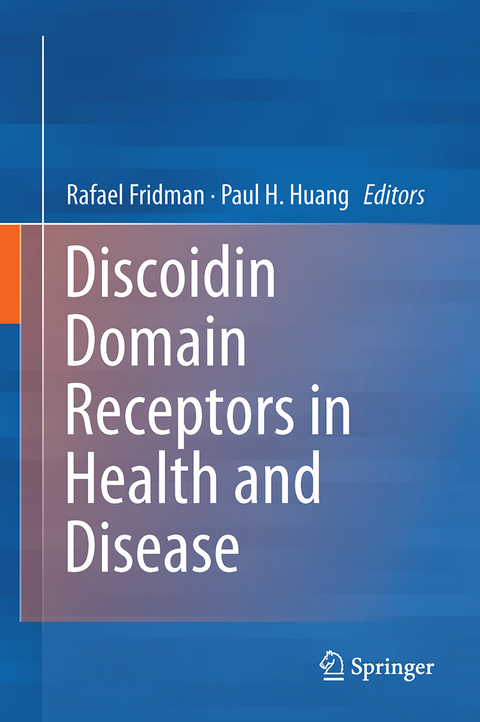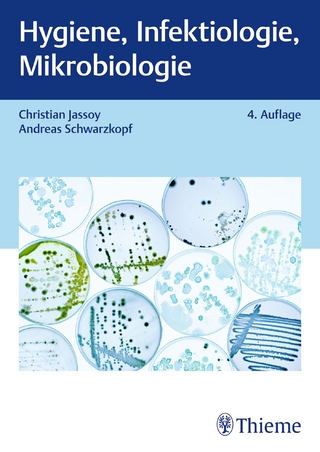
Discoidin Domain Receptors in Health and Disease
Springer-Verlag New York Inc.
978-1-4939-6381-2 (ISBN)
Rafael Fridman, Ph.D, is a Professor in the Department of Pathology at Wayne State University and a Scientific Member of the Barbara Ann Karmanos Cancer Institute, in Detroit, Michigan. Dr. Fridman is an expert on discoidin domain receptors and matrix metalloproteinases and his research focuses on understanding the molecular and cellular mechanisms that regulate cell-matrix interactions in normal and pathological processes. Dr. Fridman has published over 120 papers in his career, which have been cited over 6800 times, aoccording to Scopus. His h-Index is 40, which is outstanding (20 = good, 40 = outstanding, 60= exceptional). Please see attached Scopus Author Profile for additional details and metrics. Dr. Fridman's extensive CV is also attached herewith. Paul Huang, Ph.D, is a Team Leader in the Division of Cancer Biology at The Institute of Cancer Research in London, United Kingdom. He leads a research group that employs mass spectrometry to characterisecancer signalling networks. His laboratory focuses on investigating novel oncogenic kinase mutations arising from next generation sequencing data as well as drug resistance mechanisms in response to targeted therapy. He has held a Sir Henry Wellcome Fellowship and was recently been awarded the Cancer Research UK Career Establishment Award.
Part I: Discoidin Domain Receptor biology and roles in physiology.- DDRs: Binding properties, cell adhesion and modulation of integrin function.- DDRs and collagen fibrillogenesis.- DDR Structural Biology.- DDR Mouse models.- DDR in Invertebrates.- Part II: Discoidin Domain Receptors in Cancer.- Discoidin Domain Receptors and Disease.- Discoidin Domain Receptors in Normal Mammary Development and Breast Cancer Progression.- Discoidin Domain Receptors in Lung Cancer.- DDRs in healthy and cancerous reproductive systems.- Small Molecule Inhibitors of Discoidin Domain Receptors.- Discoidin Domain Receptor Signaling Networks.- Discoidin Domain Receptor Signaling and Pharmacological Inhibitors.- Functions of DDR1 in epithelial cell differentiation.- Part III: Discoidin Domain Receptors in other pathologies.- Discoidin Domain Receptor 2 in Development of Osteoarthritis.- DDR1 in Renal Function and Disease.- Discoidin DomainReceptors in Liver Fibrosis.- The role of DDRs in Atherosclerosis.- Discoidin Domain Receptors in Cardiac Development.
| Erscheinungsdatum | 08.10.2016 |
|---|---|
| Zusatzinfo | 55 Illustrations, color; 27 Illustrations, black and white; XIV, 355 p. 82 illus., 55 illus. in color. |
| Verlagsort | New York |
| Sprache | englisch |
| Maße | 155 x 235 mm |
| Themenwelt | Medizin / Pharmazie ► Medizinische Fachgebiete ► Mikrobiologie / Infektologie / Reisemedizin |
| Medizin / Pharmazie ► Medizinische Fachgebiete ► Onkologie | |
| Medizin / Pharmazie ► Studium | |
| Naturwissenschaften ► Biologie ► Biochemie | |
| Naturwissenschaften ► Biologie ► Zellbiologie | |
| ISBN-10 | 1-4939-6381-3 / 1493963813 |
| ISBN-13 | 978-1-4939-6381-2 / 9781493963812 |
| Zustand | Neuware |
| Haben Sie eine Frage zum Produkt? |
aus dem Bereich


